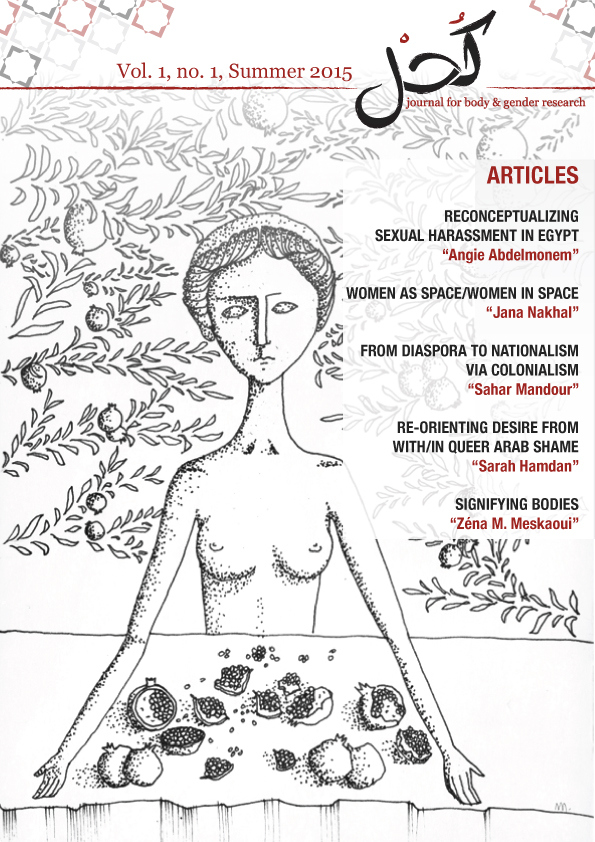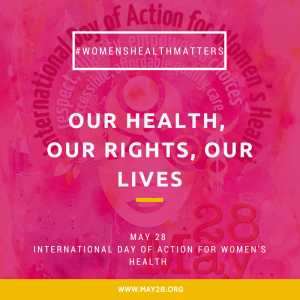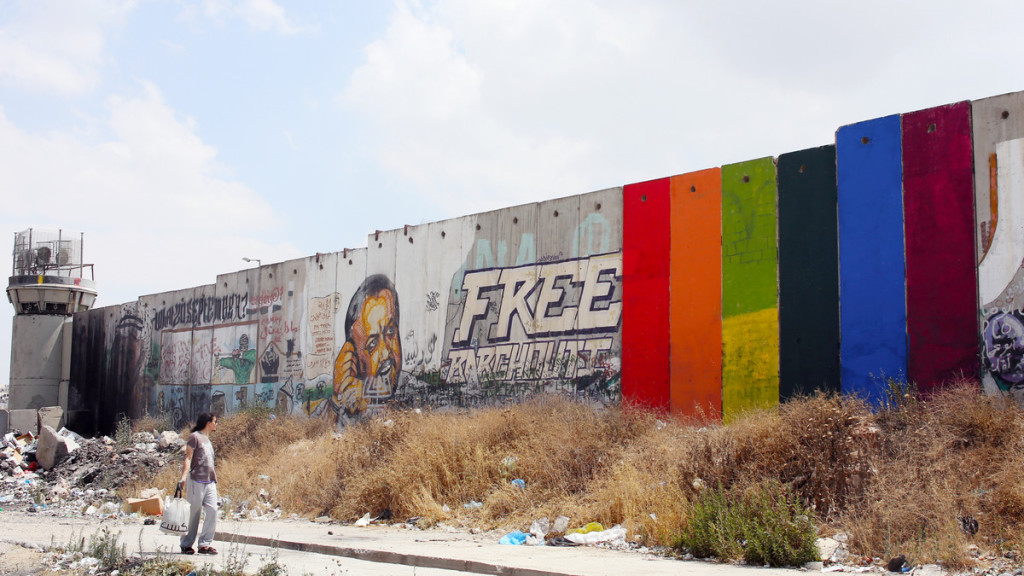 Khaled Jarrar’s rainbow mural “Through the Spectrum” painted on the Israeli separation wall near Qalandiya checkpoint in the occupied West Bank. (Khaled Jarrar)
Khaled Jarrar’s rainbow mural “Through the Spectrum” painted on the Israeli separation wall near Qalandiya checkpoint in the occupied West Bank. (Khaled Jarrar)
Earlier this week, I painted a section of the Israeli apartheid wall near Qalandiya checkpoint in the occupied West Bank with the colors of the rainbow flag. Later that night, some people from the community painted it over.
As an artist, I usually prefer that my work speak for itself. But I feel that my intentions have been hijacked and manipulated, including by the Associated Press, whose report on the ensuing controversy was carried in publications all over the world, such as The Guardian and Haaretz.
So I felt it was time for me to address what happened in my own words. I painted the mural — which I titled “Through the Spectrum” — in broad daylight. Israeli occupation forces were not far away and Palestinians crossing back and forth through the checkpoint were all around.
In other words, life was “normal” in occupied Palestine, and the painting was executed in full view of passersby and local residents. Later the same day, news of my mural blew up on social media, and several Palestinians including a journalist seized on my action to encourage others to, ironically, go and save the racist Israeli wall from the “shame” I had brought on it.
A posting on Facebook used a photograph I had taken of the mural accompanied by the words “This filth will not see daylight. Tonight it will be painted over.” Following this incitement, and in the dark of night, a small group of Palestinian men whitewashed the rainbow.
Icon of oppression
Let me tell you what inspired my mural. Like people all over the world, I followed the news about the recent Supreme Court decision to legalize same-sex marriage in the United States. Millions of people, including many of my Facebook friends from Palestine and all over the world, used the “celebrate pride” filter provided by Facebook, to add a semi-transparent rainbow overlay to their profile pictures.
Everywhere, images of rainbows went viral and even the White House was lit up in rainbow colors.
This got me thinking about all these international activists and ordinary citizens who were celebrating freedom for a group of people who have historically been oppressed, and the use of the rainbow as a symbol of freedom and equality and what it could represent for other oppressed groups.
It also made me think of our daily struggles for equality, freedom and justice here in Palestine. While people in the United States celebrated, and I celebrate with them for their victory, we in Palestine are still divided from our own communities and families because of the racist and bigoted policies of Israel.
The apartheid wall, built in violation of international law, cuts across our land and our water. It divides farmers from their trees and crops, villages from cities, the faithful from their places of worship, parents from their children, children from their schools, and partners from one another. It stops people from getting married and living together and it destroys the possibility of living peacefully in an undivided country.
For 67 years, we have struggled together against Israeli ethnic cleansing, occupation and apartheid and this wall is just one — albeit very significant — barrier to our freedom.
I wanted the world to see that our struggle still exists and I felt there could be no better place to have that dialogue than on the concrete slabs of the most visible icon of our oppression.
I was heartened that the majority of Palestinians who contacted me as the controversy unfolded supported my actions. As the days passed, more and more of these voices became public and I have met many new people in my community who share the same love for freedom and our right to exercise our voices through creative means.
I also understand that the rainbow flag is a distinctive symbol often used for LGBTQ communities and has its own history and specific context. I am not shying away from any debate that our society should have by using these colors, but I believe the colors of the rainbow represent love, humanity and freedom. And yes, there were a minority who were confused by, or against, my actions. This minority was very vocal.
Whitewashing and pinkwashing
The whitewashing of the wall immediately brought the attention of world media. On 30 June, I spoke to the Associated Press and told them my intentions as I’ve written them here. I was dismayed when their article the next day used my action to anchor a narrative that highlights the alleged tolerance of Israel toward LGBTQ people, including Palestinians.
I felt that the entire story was hijacked by a pro-Israeli narrative that executed a “pinkwash” — essentially censoring what transpired, including my intentions. Pinkwashing is a form of distraction, using Israel’s supposedly gay-friendly policies as a smokescreen for the larger crimes of the occupation.
There was no mention of the outpouring of Palestinian support my action received and the complexities and diverse opinions that exist in our society as in others all over the world.
It claimed that Israel, because of its supposed tolerance, is a safe place for Palestinians who engage in same-sex relations, even though there are no laws that offer any sort of asylum to Palestinians in Israel and they are frequently subjected to particularly abusive treatment by Israeli authorities precisely because they are Palestinian. As the Israeli LGBTQ academic and activist Aeyal Gross has pointed out, the Israeli government is quick to exploit LGBTQ issues in its international propaganda while doing nothing to actively promote them at home.
As one astute observer noted on Facebook: “While the world celebrates gay marriage victory: in Israel, you can marry anyone as long she/he [is] not Palestinian.” That is true. In 2003, Israel passed a law, renewed every year since, that forbids its citizens from living in Israel with Palestinian spouses from the occupied West Bank and Gaza Strip, or from several Arab states.
When Israel’s high court upheld the law in 2012, Human Rights Watch condemned it for blatant discrimination.
“The law violates Israel’s obligations under the Convention on the Elimination of All Forms of Racial Discrimination, which applies not only to race but also to national or ethnic origin and among enumerated rights protects ‘the right to marriage and choice of spouse,’” the human rights group said.
Misinformation
While painting Israel as exceptionally LGBTQ-friendly, the Associated Press does concede that that “Officially there is still no same-sex marriage in Israel, primarily because there is no civil marriage of any kind.” What this means is that not only can’t Israelis marry Palestinians, but they can’t even marry each other unless they are from the same religion.
The Associated Press goes on to perpetuate another myth, claiming that a “1951 Jordanian law banning homosexual acts remains in effect in the West Bank, as does a ban in Gaza passed by British authorities in 1936.”
But this is incorrect. The Jordanian Penal Code of 1951 (amended in 1960) does operate in the West Bank, but as the international LGBTQ group ILGA notes in its latest annual report, the law contains “no prohibition on sexual acts between persons of the same sex.”
It is true, nonetheless, that questions of sexual practice as an identity and sexual relations between people of the same sex as well as of different sexes are matters of controversy, contestation and social strictures in Palestinian society as well as in Israeli Jewish society and all over the world.
To ignore all this and bolster the narrative of Palestinians as “backward” and Israelis as “progressive” is the very essence of pinkwashing. I strongly object to my work being used to fuel this sort of pro-Israeli propaganda.
It boils down to this: Israeli officials have boasted that 100,000 people attended the recent gay pride parade in Tel Aviv. But even if 100,000 of us Palestinians living in the occupied West Bank or Gaza Strip wanted to join that parade, we would have found the Israeli apartheid wall blocking our way.
I believe my role as an artist who often works in public spaces is to instigate dialogue. I stand behind my work — the colors on the apartheid wall added layers to other discussions depicted there that connect peoples and their struggles against oppression throughout history.
By subverting a symbol of freedom and self-determination to apply in broader contexts that include our own plight as Palestinians, I wanted to use the rainbow colors to open a passionate dialogue. While the work is now whitewashed, the debate continues.
I’m grateful to the many Palestinian journalists, artists, friends and others who are now reporting on the topic and the wonderful, complex conversations they are starting. I take heart from our ability to tackle difficult subjects and engage in an internal and international dialogue that breaks stereotypes that outsiders and even we Palestinians might hold about our society.
Khaled Jarrar is an acclaimed international artist who was born in Palestine and continues to live and work there. Having graduated from the International Academy of Art Palestine in 2011, his artwork and films capture highly symbolic ideas through photographs, videos and site-specific performative interventions focused on the plight of Palestinians.
Source: Electronic Intifada
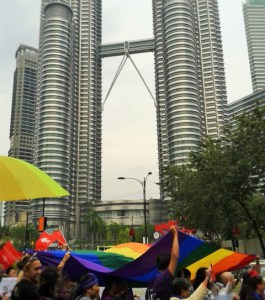

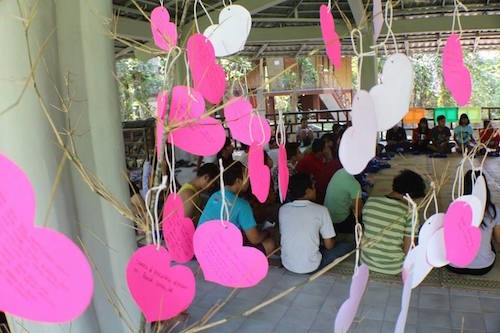
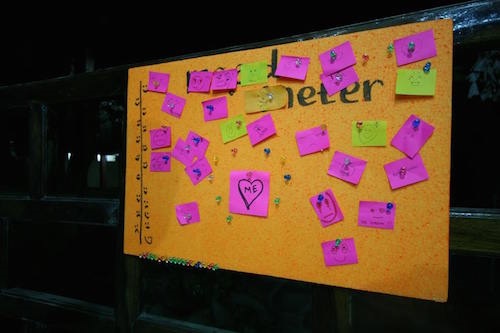 The participants express their feelings after one of the sessions. Yulia Dwi Andriyanti
The participants express their feelings after one of the sessions. Yulia Dwi Andriyanti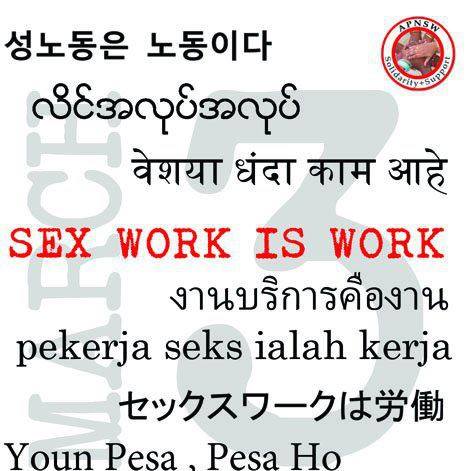 Moral and religious discussions about whether the buying and selling of sexual services is right or wrong, on the other hand, continue to be fashionable and dominate media coverage. Why are so many people quick to judge sex workers as either victims needing to be rescued or criminals needing to be stopped, but so slow to listen to what we have to say?
Moral and religious discussions about whether the buying and selling of sexual services is right or wrong, on the other hand, continue to be fashionable and dominate media coverage. Why are so many people quick to judge sex workers as either victims needing to be rescued or criminals needing to be stopped, but so slow to listen to what we have to say?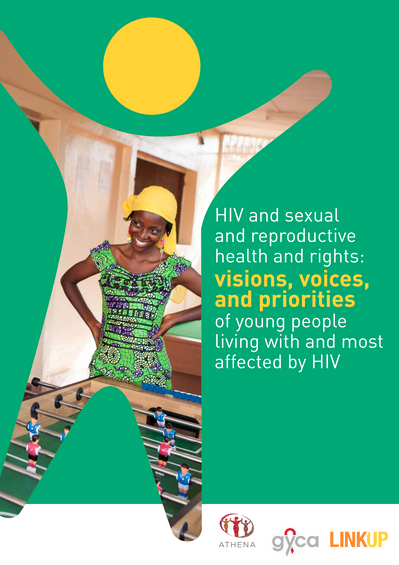

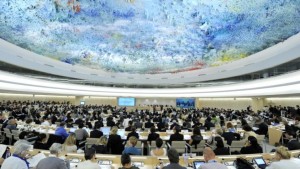 C
C
 Indonesia, which included the founding of CSBR member and current coordinating office
Indonesia, which included the founding of CSBR member and current coordinating office 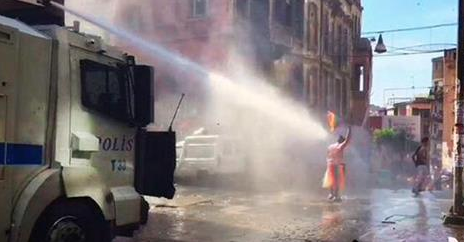









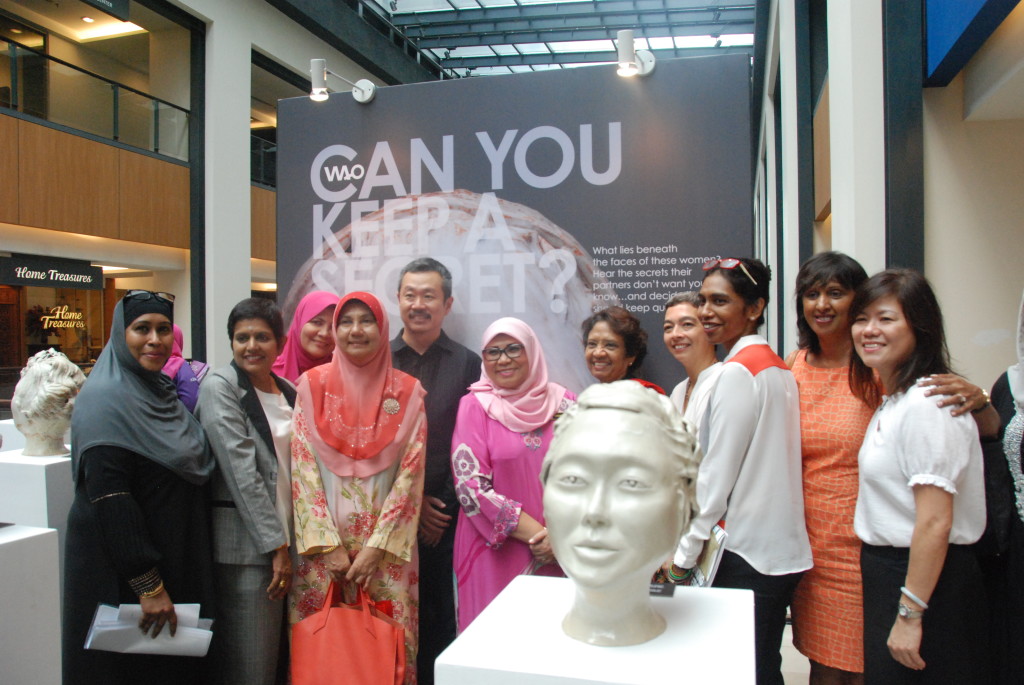
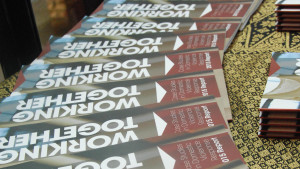 display at the Blue Bridge on Level G3 of Publika, featuring live-size ceramic head sculptures representing everyday women who could be victims of abuse. The twelve ceramic heads feature different stories of domestic violence survivors, drawing the public’s attention and urging them to speak out when it matters most – when they notice abuse.
display at the Blue Bridge on Level G3 of Publika, featuring live-size ceramic head sculptures representing everyday women who could be victims of abuse. The twelve ceramic heads feature different stories of domestic violence survivors, drawing the public’s attention and urging them to speak out when it matters most – when they notice abuse.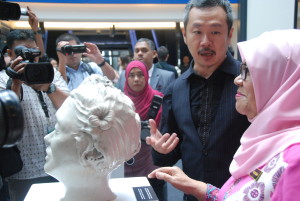 The Minister also noted that there were strengths and weaknesses in the response system for domestic violence survivors, which the report points out. The Minister added that her Ministry would “consider all suggestions and recommendations that WAO has raised in the report to better address domestic violence.”
The Minister also noted that there were strengths and weaknesses in the response system for domestic violence survivors, which the report points out. The Minister added that her Ministry would “consider all suggestions and recommendations that WAO has raised in the report to better address domestic violence.”
